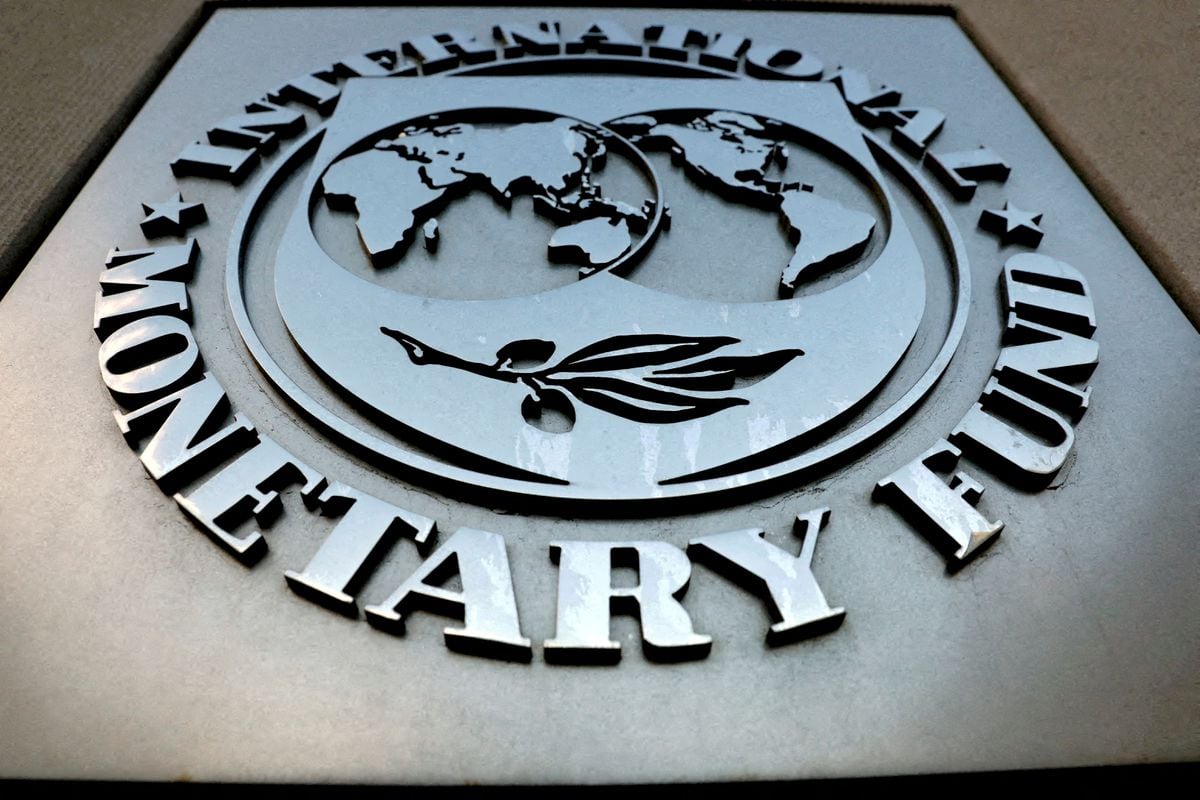Credit rating downgrades to the most indebted companies, bankruptcies of the Chinese state giants, pressure on vulnerable families if aid is withdrawn early, a growing ball of bad loans that banks will have to face and a sea of debt in which States are going to swim ... The International Monetary Fund (IMF) warns in its latest update of the report on financial stability of the foreseeable damage that the pandemic threatens to inflict on companies (both banks and non-financial companies), households and countries .
Just take a quick look at the big global numbers for the past 12 months to put the most spirited down.
Global debt - which is carried by both private entities and states - climbed at the end of last year to 277 trillion dollars (about 230 trillion euros), as calculated at the end of last year by the Institute of International Finance.
Or, what is the same, 365% of global GDP.
In addition, around 90 million people are expected to fall into extreme poverty throughout 2020, the fateful year of the coronavirus, and 2021. And the fiscal position of the majority of Public Treasuries on the planet has become much more precarious after injecting billions and billions into the economy to fight the pandemic.
But things may not stop there.
And get worse.
“The risks to financial stability have for now been kept under control.
But nothing ensures that this will continue to be the case, ”Tobias Adrian and Fabio Natalucci, heads of the Monetary and Capital Markets department, write on the IMF blog.
The IMF insists that the deployment of vaccines - which will be very uneven between regions of the world - allows a surge of optimism in this year that has just begun.
But that does not mean that the outlook is clear of risks, which, as the document published this Wednesday points out, "threatens financial stability in some sectors and countries."
The Fund's technicians also warn of a possible correction in the price of assets if investors began to bet on uneven growth between countries and sectors.
But the most interesting thing about the document presented this Tuesday is not the large macroeconomic figures, but the references to specific agents such as families and companies.
"Although solvency problems have been limited for now, there is still risk in non-financial companies," says the Fund.
Its economists warn of the so -
called
fallen angels
- companies whose bonds lose investment grade and become speculative, famous
junk bonds
-
,
whose number has tripled since the outbreak of the pandemic.
"Its potential for growth is high in regions such as the EU and the US," the document adds.
On China, the IMF warns of the delicate financial balance of its large semi-state conglomerates.
In the last year, in the last year at least 11 groups have suspended the payment of their debt, a clear warning about the weaknesses of the Asian giant's financial system.
Ultimately, the body headed by Kristalina Georgieva concludes that the health of the global business fabric depends on the evolution and duration of the pandemic.
"In the event that investors reassess growth prospects, liquidity pressures and the risk of these becoming insolvencies could resurface," they conclude.
The families of half the world do not have a clearer picture.
So far, the problems of the households hardest hit by the pandemic have been cushioned by the support of the States, as well as by low interest rates that make their debt burden less heavy.
“But the poorest families have been more affected than the rest.
This suggests that financial problems will increase if public aid is withdrawn too soon or there is an incomplete economic recovery ”, he continues.
Finally, banks are another source of concern, despite the fact that for now the health crisis has not changed to a financial crisis.
"The challenges they face to maintain profitability, especially in a scenario of low interest rates, cast doubt on their ability or willingness to continue lending in the coming quarters," say the Fund's experts, who fear that banks will start to restrict credit due to the increase in bad debts that comes to them.
As they have repeated on other occasions, IMF officials insist that the support of governments and central banks is still necessary to stabilize the economy until a solid recovery is seen.
"It is necessary to build a bridge that allows reaching the moment when vaccines are already available to all, and this implies ensuring liquidity for families and companies, and keeping financial risks under control", they conclude.

/cloudfront-eu-central-1.images.arcpublishing.com/prisa/WJWAA6KAR7GXMY3V7SWBXN3KMI.jpg)


/cloudfront-eu-central-1.images.arcpublishing.com/prisa/ULLVQMZJ3B5Q65JVZ3L32DED7I.jpg)








